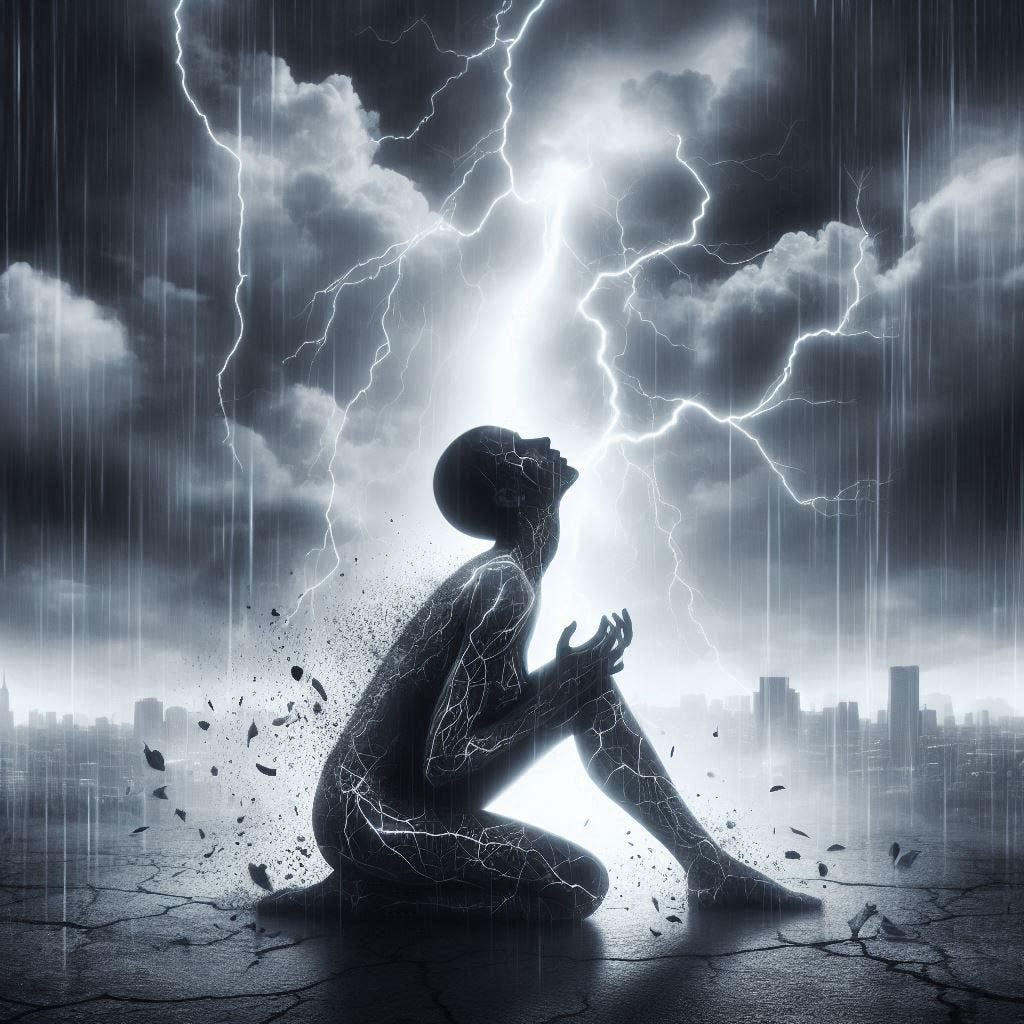Stories of Recovery: Julie's Story
How Julie recovered from a year of severe anxiety post-ayahuasca
This is the first installment of a new project called Stories of Recovery, which will share people’s stories of post-psychedelic difficulties and their recovery from them.
It’s so frightening when one is in the midst of the storm, your life is upside down, and you have no idea how long it will last or if you will ever recover. But most people do recover, and one of the things they tell us is the priceless value of coming across stories from others who have gone through the storm.
So here’s the first story - how Julie recovered from a year of severe anxiety after an ayahuasca retreat. I will share the video and transcript below. A few quick general points I took from her story:
Psychedelics are unpredictable. Julie had tried psychedelics before without problems, and is a mature and resilient woman. She did have a history of childhood trauma, but she was in a stable place in her life and went to a reputable retreat. She got unlucky in the psychedelic lottery.
Julie knew trips could be gnarly but had no idea she could come back feeling worse and the severe difficulties could last for months.
She went to a multi-ceremony retreat, and it was the fourth ceremony which was really really hard - she describes the experience as like being in an electrical storm, getting repeatedly struck by lightning, and feeling completely at the mercy of this terrifying experience. Her body could not contain the energy she was flooded with.
The principal resulting post-psychedelic difficulty was anxiety - it was so intense she couldn’t be alone, for months. This fits with our research and other research showing heightened anxiety is the most common post-psychedelic difficulty.
But, like many others, she experienced multiple other symptoms - loss of appetite and severe weight-loss (her husband thought she might die from weight loss), severe sleep impairment, social anxiety, social disconnection, existential confusion, and then depression, shame and self-blame at what she’d chosen to put herself through.
It’s hard to comprehend the suffering these post-psychedelic crises involve. Julie lost a child some years back to cot death, and she says this suffering was worse than that, because one feels so alone and have no idea what’s going on or if it will last for ever.
A year on, Julie finally feels better and can enjoy life again. What helped?
Like others, Julie’s symptoms seemed to clear up one by one - her appetite came back, she gained weight, she started sleeping better, then her anxiety gradually dissipated.
She tried a lot of things to get better - acupuncture, therapy, various medications, various integration experts…
Some things didn’t help, others did. What helped? Particularly her husband Jeff - he was by her side for months, constantly. He says it was the hardest thing he’d ever gone through, as he thought he was going to lose Julie. Again, this fits with our research - the most common coping method people say helped them is support from friends and loved ones.
An integration therapist stuck with her all through the hard months, and this helped a lot. Julie says she was also helped by cold showers (sometimes three in a night) and other grounding practices, as well as access to others’ stories of post-psychedelic recovery, which I helped provide her with.
I introduced her to Deborah Martin, who wrote a chapter in Breaking Open: Finding a Way Through Spiritual Emergency (which I co edited). Apparently her story of post-MDMA crisis and recovery was super helpful.
Julie says making herself go to work helped, to stop her world from shrinking too much. And she took medication for anxiety and for depression, some of which she still takes.
Finally, perhaps time helped her recover and her nervous system stabilize. But how much time it takes to recover is unpredictable and varies from days to years (it took me several years to recover). And if you’d told Julie right after the retreat it could take her a year to recover, it would probably have made it worse. ‘Time stretched during that period’, she says. ‘It was like running through mud’.
She also mentioned how various psychedelic integration experts were not helpful - they pill shamed her, or told her she wasn’t integrating right, she wasn’t ‘listening to the medicine’ or whatever.
Here’s the video , and after the paywall, a transcript of the interview. Also, a quick plug for our psychedelic safety seminar next week featuring Jamie Wheal, Lindsay Bira and Rob Coffey on ‘managing risks in psychedelics and extreme sports’. Three great speakers, it will be good. Paid subscribers get a free ticket.



